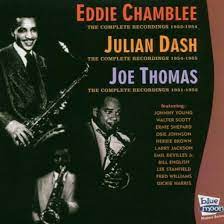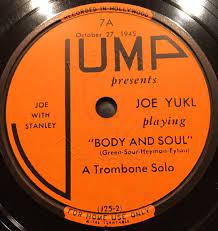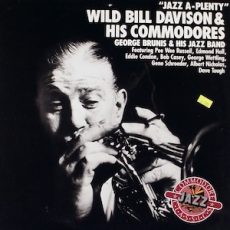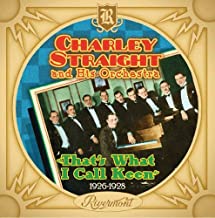
Daily Dose Of Jazz…
Joe Thomas was born in Muskogee, Oklahoma on December 23, 1908 and was the brother of Walter “Foots” Thomas. He first went to New York City with Jelly Roll Morton in 1929.
During the 1930s he worked with Blanche Calloway and other bands. The early Forties saw him working with jazz musician Dave Martin. He gave up playing to become a vocal coach and songwriter and later an A&R executive.
Alto saxophonist and songwriter Joe Thomas transitioned on April 15, 1997.
More Posts: history,instrumental,jazz,music,saxophone

Daily Dose Of Jazz…
Joseph William Yukl was born on March 5, 1909 in Los Angeles, California and learned to play violin before switching to trombone as a teenager.
Yukl relocated to New York City in 1927 where he took a position playing in radio bands for CBS, and worked with Red Nichols and The Dorsey Brothers. During 1934 he played with Joe Haymes, then with the Dorseys once again.
Through the end of the decade he played with Louis Armstrong, Ray McKinley, Bing Crosby, Ben Pollack, Frankie Trumbauer, and Ted Fio Rito. The 1940s saw Joe working as a session musician for studio recordings in Los Angeles, California and for film and television.
He played with Wingy Manone and Charlie LaVere in the 1940s. He appears in the film Rhythm Inn in 1951 and is heard playing trombone in the 1953 movie The Glenn Miller Story.
Trombonist Joe Yukl transitioned on March 16, 1981 at the age of 72 in his hometown.
More Posts: history,instrumental,jazz,music,trombone

Daily Dose Of Jazz…
Robert Hanley Casey was born in Johnson County, Illinois on February 11, 1909 and learned to play banjo and guitar as a child, playing both in regional ensembles in the Midwest. He didn’t pick up the bass until he was twenty and continued as a guitarist for some time after.
The mid-1930s saw him playing in NBC radio ensembles and working with Wingy Manone. In 1939 Bob joined Muggsy Spanier’s Ragtimers band but the group soon split, after which he played with Charlie Spivak, Brad Gowans, Eddie Condon, Miff Mole, and Joe Marsala. He played extensively on radio with several of these ensembles.
Casey was also a prolific session bassist, recording with Wild Bill Davison, Bobby Hackett, Cliff Jackson, Max Kaminsky, Eddie Edwards, Bud Freeman, Pee Wee Russell, Georg Brunis, George Wettling, Ralph Sutton, Joe Sullivan, and Boyce Brown in the 1940s and 1950s.
Relocating to Florida in 1957, he played with the Dukes of Dixieland. By the 1970s he was playing only occasionally. Double bassist Bob Casey transitioned on April 9, 1986, in Marion, Illinois.
More Posts: bass,history,instrumental,jazz,music

Daily Dose Of Jazz…
William Crickett Smith was born on February 8, 1881 in Emporia, Kansas, the child of Tennessee Exodusters. His professional career began in childhood, performing in Nathaniel Clark Smith’s Picaninny Band before moving into minstrel troupes, vaudeville and cabaret.
In 1913-1914, he made several early recordings with James Reese Europe’s group, the Clef Club Society Orchestra. Between 1914 and 1919, he performed in the Ford Dabney Orchestra, the resident band at Florenz Ziegfeld’s Broadway cabaret, Midnight Frolics. Between 1917-1919, they produced several dozen phonographs.
By 1919 Smith had relocated to Paris, France playing with Louis Mitchell’s Jazz Kings until 1924. The group recorded for Pathe Records. He became the leader of Mitchell’s group in 1923. He went on to tour France, Spain and Russia with his own bands from 1925 to 1933. However, during the Depression, he spent nine years in Southeast Asia, working with Herb Flemming, Leon Abbey, and Teddy Weatherford, mostly in Bombay and Batavia. In 1936, he recorded with a group called the Symphonians.
Around 1943 cornetist and trumpeter Crickett Smith, who played jazz blues and ragtime, returned to New York City and the following year transitioned on August 30, 1944.
More Posts: bandleader,cornet,history,instrumental,jazz,music,trumpet

Daily Dose Of Jazz…
Charles Theodore Straight was born on January 16, 1891 in Chicago, Illinois. He started his career in 1909 at 18 accompanying singer Gene Greene in Vaudeville. In 1916, he began working at the Imperial Piano Roll Company in Chicago, where he recorded dozens of piano rolls.
Becoming a popular bandleader around town during the Jazz Age, his band, the Charley Straight Orchestra, had a long term engagement at the Rendezvous Café from 1922 to 1925 and recorded for Paramount Records and Brunswick Records during the decade.
This period also saw Straight working with Roy Bargy on the latter’s eight Piano Syncopations. Besides working as a pianist or leading an orchestra, he also composed and arranged music, both ragtime and jazz.
Pianist, bandleader and composer Charley Straight transitioned on September 22, 1940 in Chicago after being struck by an automobile while working as a city sanitary inspector. He was emerging from a manhole in the street.
More Posts: arrangr,bandleader,composer,history,instrumental,jazz,music,piano





